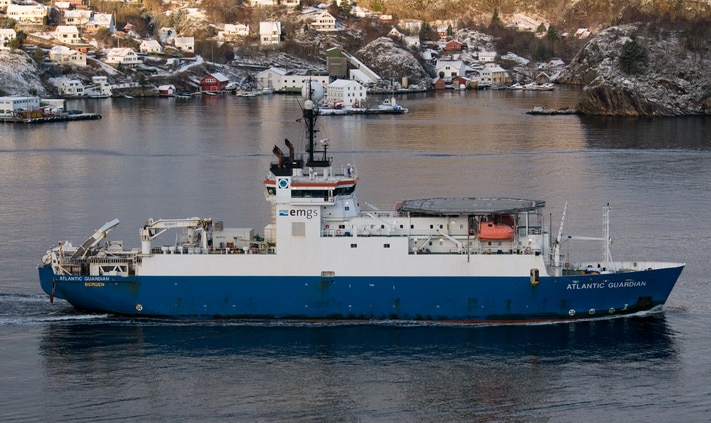Petroleum operations have not always sat comfortably with concern for the environment or sustainability. However, over time this landscape has evolved, moving from the position that responsibility stopped with the applicable regulations, through an unwritten social contract into a more rigorous Social Licence to Operate (SLO). A genuine desire to safeguard people and the environment has become an increasingly formal and central part of the business process. This understanding now flows throughout the life of an asset encompassing strategic considerations, project funding and approval, stakeholder engagement, project management, and of course their relationship to technical expertise. These winds of change are blowing increasingly strongly through all sectors but particularly through the energy industry, with its potentially high impact from ‘wide-area’ operations.
There are a number of cultural, technological and commercial drivers for this change. The central components are a developing and more universal understanding of human rights coupled with a growing trend of nationalisation and a call for greater transparency for public companies. These are driven, at least in part, by an increasing number of vociferous stakeholders, emboldened by new communication technology, not least the internet.
Marry this with the inevitable push into more technically challenging, as well as more environmentally and culturally sensitive areas, and it is clear why the energy industry now has to develop and protect its SLO as it strives to deliver the type of programmes that are expected of it.
It is right and proper that a degree of power has shifted from those traditionally involved in exploration and production, such as landowners, technology providers and financiers, to a broader church of stakeholders. However, this shift means that there is now an additional level of complexity that must be managed, and managed well.
A Broad Canvas
 The search for unconventional hydrocarbons such as coal seam gas involves discussions with politically sophisticated stakeholders. Source: RPSTen years ago this looming challenge was apparent to RPS and led to the decision to develop an Energy Practice, bringing energy and the environment together within a single company. This strategy has developed over the years both in the UK and elsewhere, building a consultancy that combines best-in-class technical and environmental expertise. Today, RPS has strong and diverse energy and environmental expertise in EAME, Australia/Asia Pacific and in North America. An important aspect of this development has been the recent incorporation of a strong training capability, partly driven by the desire to contribute to the increasingly important knowledge transfer aspect of SLO as an element of a company’s broader corporate responsibility strategy. It is a core competency to be able to offer the training excellence expected by international operators to national energy companies and to help them manage their training and competency assessment and assurance needs.
The search for unconventional hydrocarbons such as coal seam gas involves discussions with politically sophisticated stakeholders. Source: RPSTen years ago this looming challenge was apparent to RPS and led to the decision to develop an Energy Practice, bringing energy and the environment together within a single company. This strategy has developed over the years both in the UK and elsewhere, building a consultancy that combines best-in-class technical and environmental expertise. Today, RPS has strong and diverse energy and environmental expertise in EAME, Australia/Asia Pacific and in North America. An important aspect of this development has been the recent incorporation of a strong training capability, partly driven by the desire to contribute to the increasingly important knowledge transfer aspect of SLO as an element of a company’s broader corporate responsibility strategy. It is a core competency to be able to offer the training excellence expected by international operators to national energy companies and to help them manage their training and competency assessment and assurance needs.
Corporate and Social Responsibility (CSR) operates on a number of levels. At the lower end of the spectrum, good practice requires engagement with local communities to identify opportunities for assistance and to mitigate any adverse consequences. Thus companies contributing to local health care, supporting schools, providing local people with support and employment, whilst not being entirely altruistic, reflect a tacit understanding that the value of success to them is large and that a proper engagement of the community is both beneficial and welcome.
At the other end of the spectrum, an holistic approach to CSR can help mitigate the ‘Paradox of Plenty’, whereby resource-rich developing countries frequently do relatively less well in terms of social performance than countries with fewer resources. In this context, helpful CSR can include promoting transparency, strengthening institutions, providing guidance on social and environmental regulation, helping to provide environmentally clean investments, investing in proper knowledge transfer and in training of local staff. Between these two ends of the spectrum is a gradation of support that can provide appropriate input to communities and that engenders social and political support at home and in other countries. Whether rooted in altruism or not, the drivers encouraging companies down this road are undoubtedly beneficial to local populations and ultimately of benefit to the company and to society.
The Challenge
The upstream energy sector is not unique in needing to work to an ‘energy and the environment’ ethos. Such considerations are important to all industries that may have a material impact on the broader environment, whether directly or indirectly. Stakeholder engagement and support is also important throughout the lifecycle of an asset, and is as critical to infrastructure development and subsequent asset operations as it is to the earlier phases of resource exploration and extraction.
Indeed, the emplacement of infrastructure is often more problematic in its planning and implementation than exploration and appraisal, as it may spread the original footprint across a much broader area, potentially affecting much larger numbers of people. SLO concepts in this case extend to cover a whole new range of stakeholders, many of whom may not directly benefit from a gain to the local economy – thus the need to plan and mitigate social impacts becomes even more important and challenging.
These issues are nowhere better demonstrated than in the Arctic. With the eyes of the world on operations in this area, whether with environmental, cultural or political sensitivities in mind, operators are well aware of the need to work to strong SLO principles. Even for the largest operators, the sheer range of capabilities needed to ensure that all aspects are addressed is a challenge and is an area where companies like RPS have been very active. The need for a multidisciplinary response has resulted in our involvement in helping to balance the technical aspects of projects, such as seismic, site surveys, drilling and logistical operations, within an acceptable environmental framework. This is achieved through careful operational and preparedness planning, environmental impact assessment, metocean analysis and rare species monitoring. In part, this has been predicated by the regulatory framework but frequently these requirements have been exceeded by the desire to satisfy the company’s various stakeholders.
The search for unconventional hydrocarbons, whether shale gas and oil in the USA or coal seam gas in eastern Australia, perhaps provides a counterpoint to the Arctic frontier. Whereas the previous example involves a wide audience concerned about a fragile and potentially shrinking environment, the latter requires engagement with politically sophisticated stakeholders in the context of comprehensive existing legislation and regulation. Operators trying to balance the positive message of important new reserves with the concerns and sometimes objections of others, all against a reputational risk backdrop, have a delicate challenge to address requiring a different, if overlapping, set of capabilities.
In both cases, the franchise of stakeholders includes staff, as it is increasingly important for both recruitment and retention that people feel proud of their company. Ultimately a low turnover of staff directly affects a company’s ability to operate effectively and this aspect of CSR is as important as other more direct issues.
Gaining a proper SLO is a challenging task, and even if successfully gained can be very easy to lose. A multi-faceted approach to keep on top of all the challenges faced before, during and after an operation can be a task that stretches even the most experienced companies.
The Future
The drivers behind a much more environmental approach to both resource exploration and associated infrastructure are clear and have been recognised by most Western operators. However, the issues are complex and even well-resourced majors will struggle to find all, or even most, of the required resources in-house. Take this in conjunction with the slow but steady take-up of these ideas by non-traditional international operators such as NOCs both at home and abroad and it is clear that there is a going to be a significant demand for consultancy services such as those offered by RPS and others.
We expect an increasing take up of skills that are informed by a broad understanding of the wider CSR requirement. It seems likely that pressure from governments and NOCs will direct CSR efforts increasingly towards training of all sorts and also towards institutional strengthening. However, the narrower requirement for local support during operations will continue to be needed to manage local expectations and engagement.
The energy and the environment theme is a useful way of looking at the development of capability and one that will become increasingly important as resource industries try to keep up with global demand.





